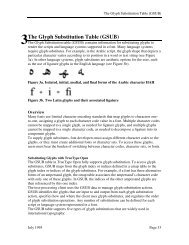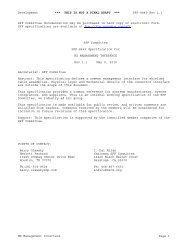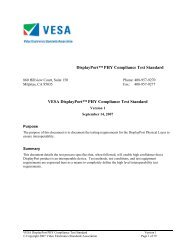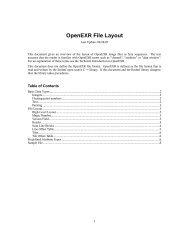- Page 1 and 2:
PCI ExpressBase SpecificationRevisi
- Page 3 and 4:
PCI EXPRESS BASE SPECIFICATION, REV
- Page 5 and 6:
PCI EXPRESS BASE SPECIFICATION, REV
- Page 7 and 8:
PCI EXPRESS BASE SPECIFICATION, REV
- Page 9 and 10:
PCI EXPRESS BASE SPECIFICATION, REV
- Page 11 and 12:
PCI EXPRESS BASE SPECIFICATION, REV
- Page 13 and 14:
PCI EXPRESS BASE SPECIFICATION, REV
- Page 15 and 16:
PCI EXPRESS BASE SPECIFICATION, REV
- Page 17 and 18:
PCI EXPRESS BASE SPECIFICATION, REV
- Page 19 and 20:
PCI EXPRESS BASE SPECIFICATION, REV
- Page 21 and 22:
PCI EXPRESS BASE SPECIFICATION, REV
- Page 23 and 24:
PCI EXPRESS BASE SPECIFICATION, REV
- Page 25 and 26:
PCI EXPRESS BASE SPECIFICATION, REV
- Page 27 and 28:
PCI EXPRESS BASE SPECIFICATION, REV
- Page 29 and 30:
PCI EXPRESS BASE SPECIFICATION, REV
- Page 31 and 32:
PCI EXPRESS BASE SPECIFICATION, REV
- Page 33 and 34:
PCI EXPRESS BASE SPECIFICATION, REV
- Page 35 and 36:
PCI EXPRESS BASE SPECIFICATION, REV
- Page 37 and 38:
PCI EXPRESS BASE SPECIFICATION, REV
- Page 39 and 40:
PCI EXPRESS BASE SPECIFICATION, REV
- Page 41 and 42:
PCI EXPRESS BASE SPECIFICATION, REV
- Page 43 and 44:
PCI EXPRESS BASE SPECIFICATION, REV
- Page 45 and 46:
PCI EXPRESS BASE SPECIFICATION, REV
- Page 47 and 48:
PCI EXPRESS BASE SPECIFICATION, REV
- Page 49 and 50:
PCI EXPRESS BASE SPECIFICATION, REV
- Page 51 and 52:
PCI EXPRESS BASE SPECIFICATION, REV
- Page 53 and 54:
PCI EXPRESS BASE SPECIFICATION, REV
- Page 55 and 56:
PCI EXPRESS BASE SPECIFICATION, REV
- Page 57 and 58:
PCI EXPRESS BASE SPECIFICATION, REV
- Page 59 and 60:
PCI EXPRESS BASE SPECIFICATION, REV
- Page 61 and 62:
PCI EXPRESS BASE SPECIFICATION, REV
- Page 63 and 64:
PCI EXPRESS BASE SPECIFICATION, REV
- Page 65 and 66:
PCI EXPRESS BASE SPECIFICATION, REV
- Page 67 and 68:
PCI EXPRESS BASE SPECIFICATION, REV
- Page 69 and 70:
PCI EXPRESS BASE SPECIFICATION, REV
- Page 71 and 72:
PCI EXPRESS BASE SPECIFICATION, REV
- Page 73 and 74:
PCI EXPRESS BASE SPECIFICATION, REV
- Page 75 and 76:
PCI EXPRESS BASE SPECIFICATION, REV
- Page 77 and 78:
PCI EXPRESS BASE SPECIFICATION, REV
- Page 79 and 80:
PCI EXPRESS BASE SPECIFICATION, REV
- Page 81 and 82:
PCI EXPRESS BASE SPECIFICATION, REV
- Page 83 and 84:
PCI EXPRESS BASE SPECIFICATION, REV
- Page 85 and 86:
PCI EXPRESS BASE SPECIFICATION, REV
- Page 87 and 88:
PCI EXPRESS BASE SPECIFICATION, REV
- Page 89 and 90:
PCI EXPRESS BASE SPECIFICATION, REV
- Page 91 and 92:
PCI EXPRESS BASE SPECIFICATION, REV
- Page 93 and 94:
PCI EXPRESS BASE SPECIFICATION, REV
- Page 95 and 96:
PCI EXPRESS BASE SPECIFICATION, REV
- Page 97 and 98:
PCI EXPRESS BASE SPECIFICATION, REV
- Page 99 and 100:
PCI EXPRESS BASE SPECIFICATION, REV
- Page 101 and 102:
PCI EXPRESS BASE SPECIFICATION, REV
- Page 103 and 104:
PCI EXPRESS BASE SPECIFICATION, REV
- Page 105 and 106:
PCI EXPRESS BASE SPECIFICATION, REV
- Page 107 and 108:
PCI EXPRESS BASE SPECIFICATION, REV
- Page 109 and 110:
PCI EXPRESS BASE SPECIFICATION, REV
- Page 111 and 112:
PCI EXPRESS BASE SPECIFICATION, REV
- Page 113 and 114:
PCI EXPRESS BASE SPECIFICATION, REV
- Page 115 and 116:
PCI EXPRESS BASE SPECIFICATION, REV
- Page 117 and 118:
PCI EXPRESS BASE SPECIFICATION, REV
- Page 119 and 120:
PCI EXPRESS BASE SPECIFICATION, REV
- Page 121 and 122:
PCI EXPRESS BASE SPECIFICATION, REV
- Page 123 and 124:
PCI EXPRESS BASE SPECIFICATION, REV
- Page 125 and 126:
PCI EXPRESS BASE SPECIFICATION, REV
- Page 127 and 128:
PCI EXPRESS BASE SPECIFICATION, REV
- Page 129 and 130:
PCI EXPRESS BASE SPECIFICATION, REV
- Page 131 and 132:
PCI EXPRESS BASE SPECIFICATION, REV
- Page 133 and 134:
PCI EXPRESS BASE SPECIFICATION, REV
- Page 135 and 136:
PCI EXPRESS BASE SPECIFICATION, REV
- Page 137 and 138:
PCI EXPRESS BASE SPECIFICATION, REV
- Page 139 and 140:
PCI EXPRESS BASE SPECIFICATION, REV
- Page 141 and 142:
PCI EXPRESS BASE SPECIFICATION, REV
- Page 143 and 144:
PCI EXPRESS BASE SPECIFICATION, REV
- Page 145 and 146:
PCI EXPRESS BASE SPECIFICATION, REV
- Page 147 and 148:
PCI EXPRESS BASE SPECIFICATION, REV
- Page 149 and 150:
PCI EXPRESS BASE SPECIFICATION, REV
- Page 151 and 152:
PCI EXPRESS BASE SPECIFICATION, REV
- Page 153 and 154:
PCI EXPRESS BASE SPECIFICATION, REV
- Page 155 and 156:
PCI EXPRESS BASE SPECIFICATION, REV
- Page 157 and 158:
PCI EXPRESS BASE SPECIFICATION, REV
- Page 159 and 160:
PCI EXPRESS BASE SPECIFICATION, REV
- Page 161 and 162:
PCI EXPRESS BASE SPECIFICATION, REV
- Page 163 and 164:
PCI EXPRESS BASE SPECIFICATION, REV
- Page 165 and 166:
PCI EXPRESS BASE SPECIFICATION, REV
- Page 167 and 168:
PCI EXPRESS BASE SPECIFICATION, REV
- Page 169 and 170:
PCI EXPRESS BASE SPECIFICATION, REV
- Page 171 and 172:
PCI EXPRESS BASE SPECIFICATION, REV
- Page 173 and 174:
PCI EXPRESS BASE SPECIFICATION, REV
- Page 175 and 176:
PCI EXPRESS BASE SPECIFICATION, REV
- Page 177 and 178:
PCI EXPRESS BASE SPECIFICATION, REV
- Page 179 and 180:
PCI EXPRESS BASE SPECIFICATION, REV
- Page 181 and 182:
PCI EXPRESS BASE SPECIFICATION, REV
- Page 183 and 184:
PCI EXPRESS BASE SPECIFICATION, REV
- Page 185 and 186:
PCI EXPRESS BASE SPECIFICATION, REV
- Page 187 and 188:
PCI EXPRESS BASE SPECIFICATION, REV
- Page 189 and 190:
PCI EXPRESS BASE SPECIFICATION, REV
- Page 191 and 192:
PCI EXPRESS BASE SPECIFICATION, REV
- Page 193 and 194:
PCI EXPRESS BASE SPECIFICATION, REV
- Page 195 and 196:
PCI EXPRESS BASE SPECIFICATION, REV
- Page 197 and 198:
PCI EXPRESS BASE SPECIFICATION, REV
- Page 199 and 200:
PCI EXPRESS BASE SPECIFICATION, REV
- Page 201 and 202:
PCI EXPRESS BASE SPECIFICATION, REV
- Page 203 and 204:
PCI EXPRESS BASE SPECIFICATION, REV
- Page 205 and 206:
PCI EXPRESS BASE SPECIFICATION, REV
- Page 207 and 208:
PCI EXPRESS BASE SPECIFICATION, REV
- Page 209 and 210:
PCI EXPRESS BASE SPECIFICATION, REV
- Page 211 and 212:
PCI EXPRESS BASE SPECIFICATION, REV
- Page 213 and 214:
PCI EXPRESS BASE SPECIFICATION, REV
- Page 215 and 216:
PCI EXPRESS BASE SPECIFICATION, REV
- Page 217 and 218:
PCI EXPRESS BASE SPECIFICATION, REV
- Page 219 and 220:
PCI EXPRESS BASE SPECIFICATION, REV
- Page 221 and 222:
PCI EXPRESS BASE SPECIFICATION, REV
- Page 223 and 224:
PCI EXPRESS BASE SPECIFICATION, REV
- Page 225 and 226:
PCI EXPRESS BASE SPECIFICATION, REV
- Page 227 and 228:
PCI EXPRESS BASE SPECIFICATION, REV
- Page 229 and 230:
PCI EXPRESS BASE SPECIFICATION, REV
- Page 231 and 232:
PCI EXPRESS BASE SPECIFICATION, REV
- Page 233 and 234:
PCI EXPRESS BASE SPECIFICATION, REV
- Page 235 and 236:
PCI EXPRESS BASE SPECIFICATION, REV
- Page 237 and 238:
PCI EXPRESS BASE SPECIFICATION, REV
- Page 239 and 240:
PCI EXPRESS BASE SPECIFICATION, REV
- Page 241 and 242:
PCI EXPRESS BASE SPECIFICATION, REV
- Page 243 and 244:
PCI EXPRESS BASE SPECIFICATION, REV
- Page 245 and 246:
PCI EXPRESS BASE SPECIFICATION, REV
- Page 247 and 248:
PCI EXPRESS BASE SPECIFICATION, REV
- Page 249 and 250:
PCI EXPRESS BASE SPECIFICATION, REV
- Page 251 and 252:
PCI EXPRESS BASE SPECIFICATION, REV
- Page 253 and 254:
PCI EXPRESS BASE SPECIFICATION, REV
- Page 255 and 256:
PCI EXPRESS BASE SPECIFICATION, REV
- Page 257 and 258:
PCI EXPRESS BASE SPECIFICATION, REV
- Page 259 and 260: PCI EXPRESS BASE SPECIFICATION, REV
- Page 261 and 262: PCI EXPRESS BASE SPECIFICATION, REV
- Page 263 and 264: PCI EXPRESS BASE SPECIFICATION, REV
- Page 265 and 266: PCI EXPRESS BASE SPECIFICATION, REV
- Page 267 and 268: PCI EXPRESS BASE SPECIFICATION, REV
- Page 269 and 270: PCI EXPRESS BASE SPECIFICATION, REV
- Page 271 and 272: PCI EXPRESS BASE SPECIFICATION, REV
- Page 273 and 274: PCI EXPRESS BASE SPECIFICATION, REV
- Page 275 and 276: PCI EXPRESS BASE SPECIFICATION, REV
- Page 277 and 278: PCI EXPRESS BASE SPECIFICATION, REV
- Page 279 and 280: PCI EXPRESS BASE SPECIFICATION, REV
- Page 281 and 282: PCI EXPRESS BASE SPECIFICATION, REV
- Page 283 and 284: PCI EXPRESS BASE SPECIFICATION, REV
- Page 285 and 286: PCI EXPRESS BASE SPECIFICATION, REV
- Page 287 and 288: PCI EXPRESS BASE SPECIFICATION, REV
- Page 289 and 290: PCI EXPRESS BASE SPECIFICATION, REV
- Page 291 and 292: PCI EXPRESS BASE SPECIFICATION, REV
- Page 293 and 294: PCI EXPRESS BASE SPECIFICATION, REV
- Page 295 and 296: PCI EXPRESS BASE SPECIFICATION, REV
- Page 297 and 298: PCI EXPRESS BASE SPECIFICATION, REV
- Page 299 and 300: PCI EXPRESS BASE SPECIFICATION, REV
- Page 301 and 302: PCI EXPRESS BASE SPECIFICATION, REV
- Page 303 and 304: PCI EXPRESS BASE SPECIFICATION, REV
- Page 305 and 306: PCI EXPRESS BASE SPECIFICATION, REV
- Page 307 and 308: PCI EXPRESS BASE SPECIFICATION, REV
- Page 309: PCI EXPRESS BASE SPECIFICATION, REV
- Page 313 and 314: PCI EXPRESS BASE SPECIFICATION, REV
- Page 315 and 316: PCI EXPRESS BASE SPECIFICATION, REV
- Page 317 and 318: PCI EXPRESS BASE SPECIFICATION, REV
- Page 319 and 320: PCI EXPRESS BASE SPECIFICATION, REV
- Page 321 and 322: PCI EXPRESS BASE SPECIFICATION, REV
- Page 323 and 324: PCI EXPRESS BASE SPECIFICATION, REV
- Page 326 and 327: PCI EXPRESS BASE SPECIFICATION, REV
- Page 328 and 329: PCI EXPRESS BASE SPECIFICATION, REV
- Page 330 and 331: PCI EXPRESS BASE SPECIFICATION, REV
- Page 332 and 333: PCI EXPRESS BASE SPECIFICATION, REV
- Page 334 and 335: PCI EXPRESS BASE SPECIFICATION, REV
- Page 336 and 337: PCI EXPRESS BASE SPECIFICATION, REV
- Page 338 and 339: PCI EXPRESS BASE SPECIFICATION, REV
- Page 340 and 341: PCI EXPRESS BASE SPECIFICATION, REV
- Page 342 and 343: PCI EXPRESS BASE SPECIFICATION, REV
- Page 344 and 345: PCI EXPRESS BASE SPECIFICATION, REV
- Page 346 and 347: PCI EXPRESS BASE SPECIFICATION, REV
- Page 348 and 349: PCI EXPRESS BASE SPECIFICATION, REV
- Page 350 and 351: PCI EXPRESS BASE SPECIFICATION, REV
- Page 352 and 353: PCI EXPRESS BASE SPECIFICATION, REV
- Page 354 and 355: PCI EXPRESS BASE SPECIFICATION, REV
- Page 356 and 357: PCI EXPRESS BASE SPECIFICATION, REV
- Page 358 and 359: PCI EXPRESS BASE SPECIFICATION, REV
- Page 360 and 361:
PCI EXPRESS BASE SPECIFICATION, REV
- Page 362 and 363:
PCI EXPRESS BASE SPECIFICATION, REV
- Page 364 and 365:
PCI EXPRESS BASE SPECIFICATION, REV
- Page 366 and 367:
PCI EXPRESS BASE SPECIFICATION, REV
- Page 368 and 369:
PCI EXPRESS BASE SPECIFICATION, REV
- Page 370 and 371:
PCI EXPRESS BASE SPECIFICATION, REV
- Page 372 and 373:
PCI EXPRESS BASE SPECIFICATION, REV
- Page 374 and 375:
PCI EXPRESS BASE SPECIFICATION, REV
- Page 376 and 377:
PCI EXPRESS BASE SPECIFICATION, REV
- Page 378 and 379:
PCI EXPRESS BASE SPECIFICATION, REV
- Page 380 and 381:
PCI EXPRESS BASE SPECIFICATION, REV
- Page 382 and 383:
PCI EXPRESS BASE SPECIFICATION, REV
- Page 384 and 385:
PCI EXPRESS BASE SPECIFICATION, REV
- Page 386 and 387:
PCI EXPRESS BASE SPECIFICATION, REV
- Page 388 and 389:
PCI EXPRESS BASE SPECIFICATION, REV
- Page 390 and 391:
PCI EXPRESS BASE SPECIFICATION, REV
- Page 392 and 393:
PCI EXPRESS BASE SPECIFICATION, REV
- Page 394 and 395:
PCI EXPRESS BASE SPECIFICATION, REV
- Page 396 and 397:
PCI EXPRESS BASE SPECIFICATION, REV
- Page 398 and 399:
PCI EXPRESS BASE SPECIFICATION, REV
- Page 400 and 401:
PCI EXPRESS BASE SPECIFICATION, REV
- Page 402 and 403:
PCI EXPRESS BASE SPECIFICATION, REV
- Page 404 and 405:
PCI EXPRESS BASE SPECIFICATION, REV
- Page 406 and 407:
PCI EXPRESS BASE SPECIFICATION, REV
- Page 408 and 409:
408PCI EXPRESS BASE SPECIFICATION,
- Page 410 and 411:
PCI EXPRESS BASE SPECIFICATION, REV
- Page 412 and 413:
PCI EXPRESS BASE SPECIFICATION, REV
- Page 414 and 415:
PCI EXPRESS BASE SPECIFICATION, REV
- Page 416:
416PCI EXPRESS BASE SPECIFICATION,


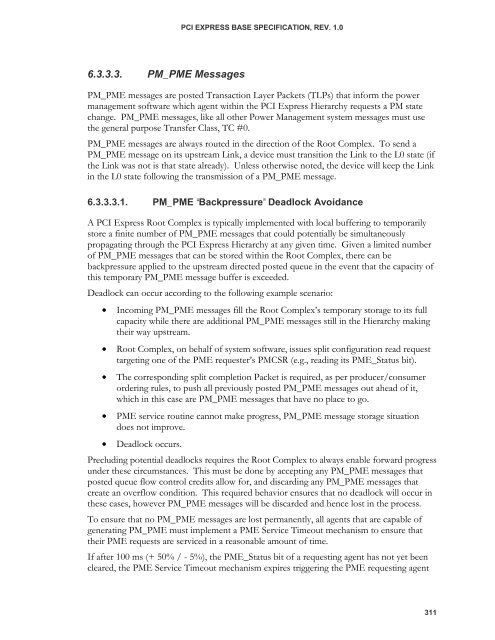
![[MS-DFSRH]: DFS Replication Helper Protocol Specification](https://img.yumpu.com/51326226/1/190x245/ms-dfsrh-dfs-replication-helper-protocol-specification.jpg?quality=85)
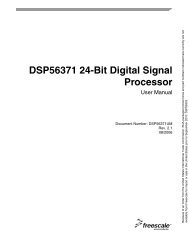
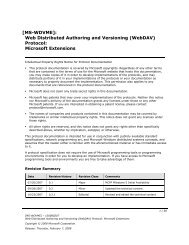
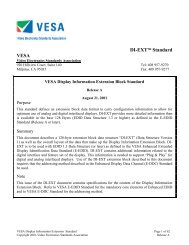
![[MS-VDS]: Virtual Disk Service (VDS) Protocol Specification](https://img.yumpu.com/50743814/1/190x245/ms-vds-virtual-disk-service-vds-protocol-specification.jpg?quality=85)
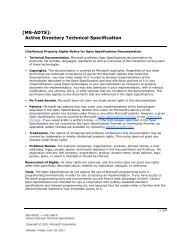
![[MS-GPSI]: Group Policy: Software Installation Protocol Extension](https://img.yumpu.com/50703911/1/190x245/ms-gpsi-group-policy-software-installation-protocol-extension.jpg?quality=85)

![[MS-GPPREF]: Group Policy: Preferences Extension Data Structure](https://img.yumpu.com/50206932/1/190x245/ms-gppref-group-policy-preferences-extension-data-structure.jpg?quality=85)
